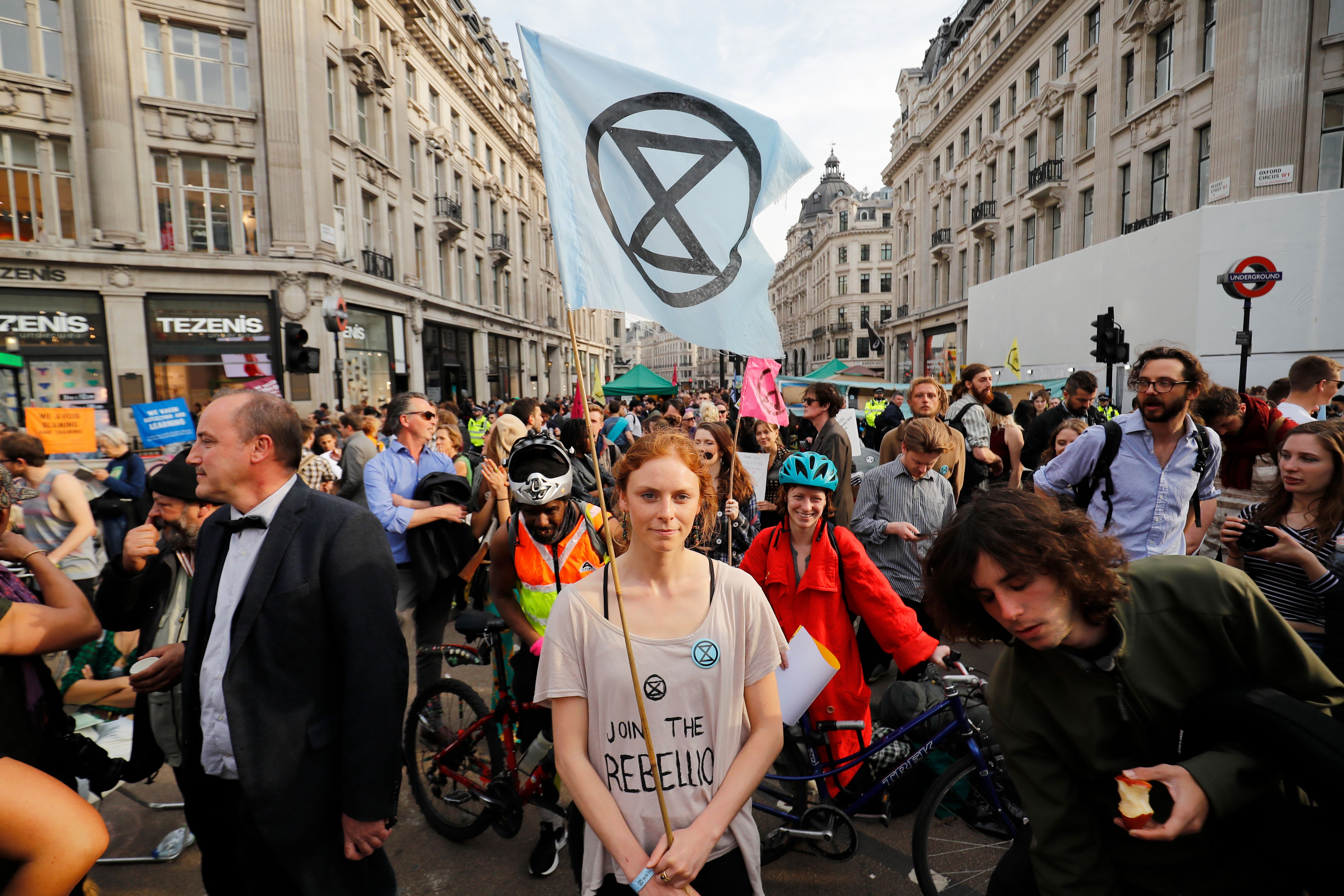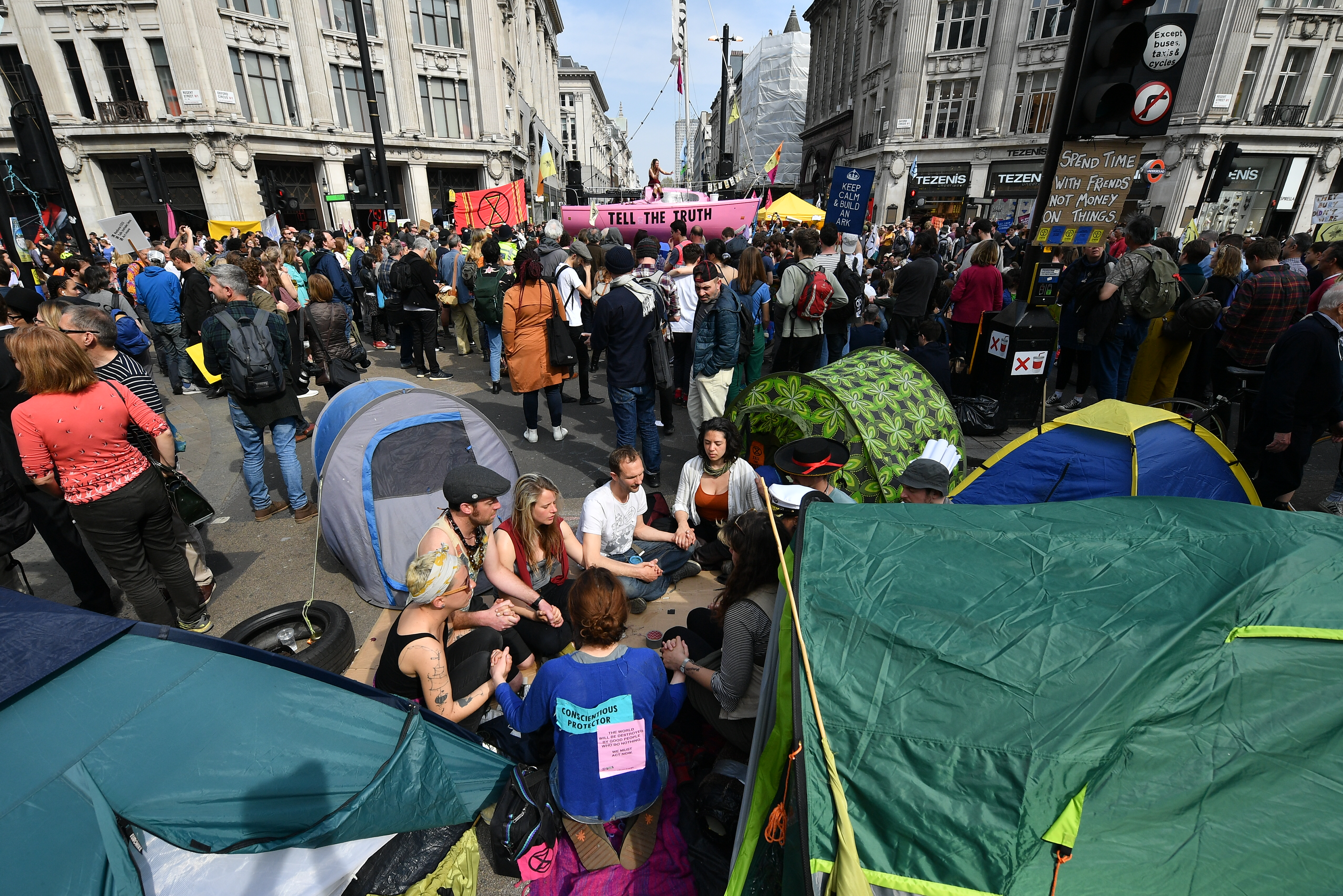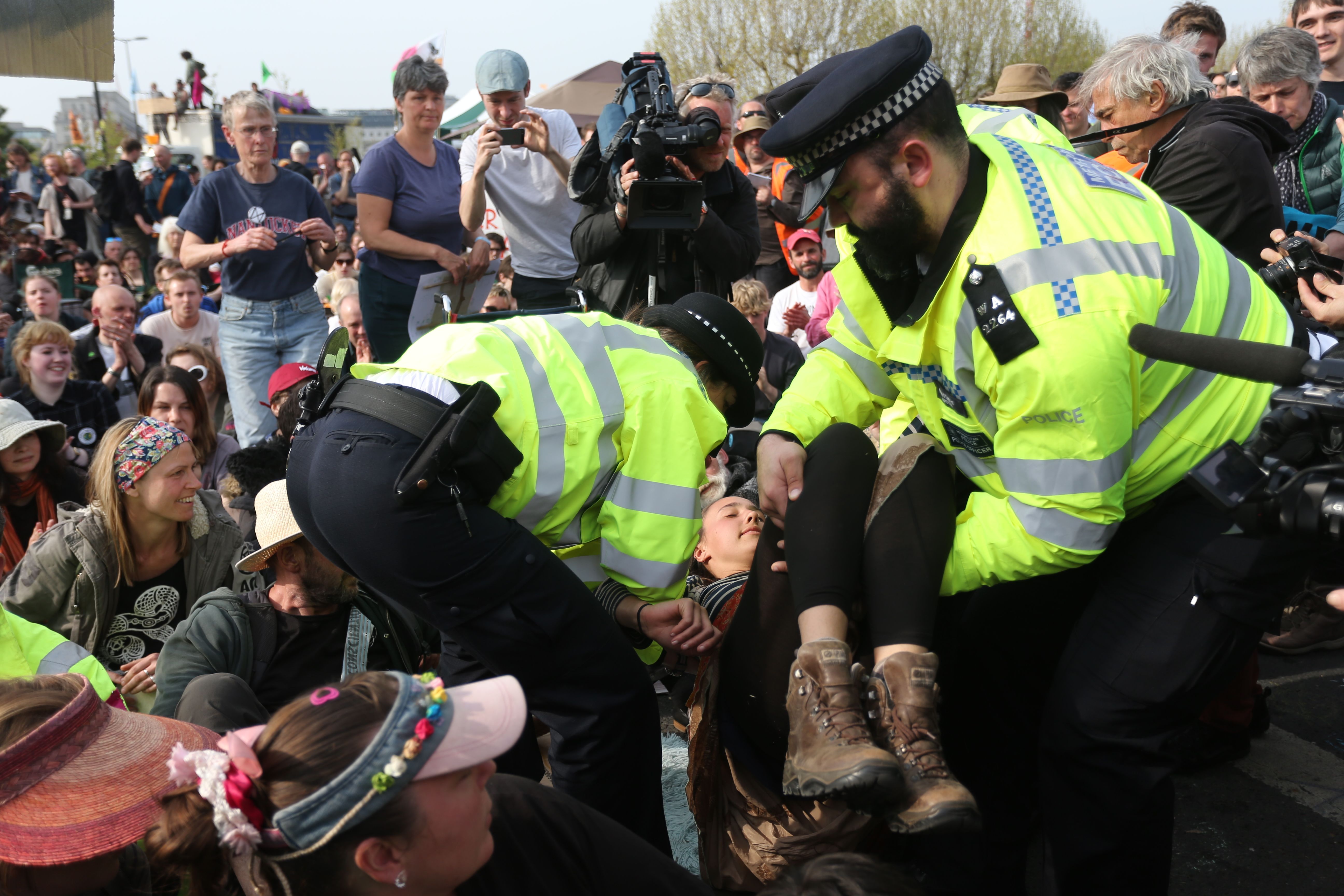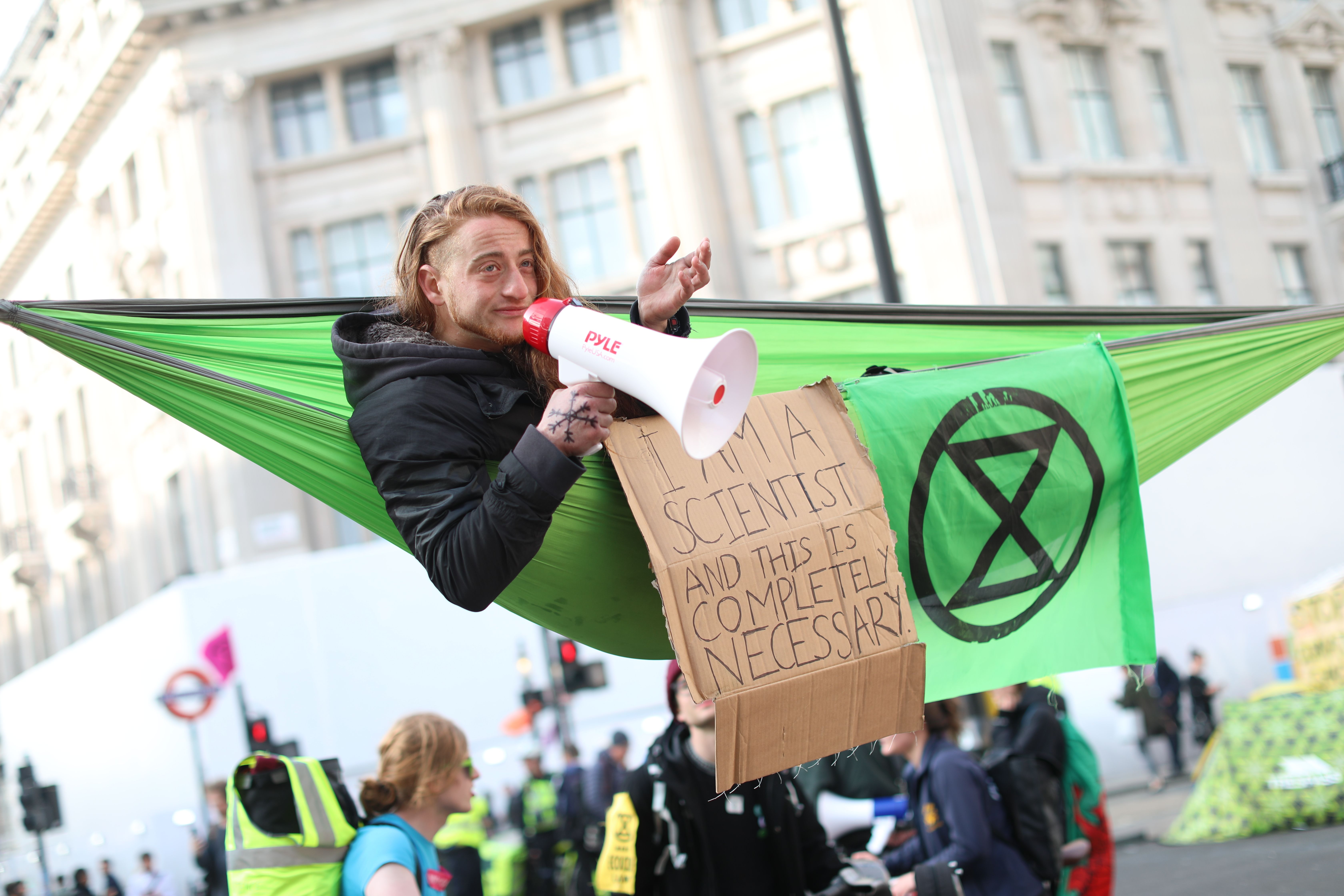On its website, the environmental group Extinction Rebellion asked protesters to take “action on the streets of cities all over the world” beginning on Monday, April 15th. And in central London, demonstrations have continued all week.
On Tuesday, Farhana Yamin, an international environmental lawyer who helped draft the landmark 2015 Paris Agreement, was arrested after gluing her hands to the ground outside the Shell building in Central London. And on Friday, protesters blocked the entrance of the headquarters of the French oil company Total, demonstrated in Parliament Square, and blocked London’s Heathrow Airport. All this happened after Extinction Rebellion activists took off all of their clothing (except their underwear) and glued their hands to the glass of the House of Commons’ public gallery. Pepper spray has been used against the protesters, and nearly 700 people affiliated with the protests have been arrested in central London this week, according to the BBC.
Extinction Rebellion is a grassroots environmental organization based out of the United Kingdom. Its website warns, “[W]e are in the midst of a mass extinction of our own making.” The group utilizes “non-violent civil disobedience to achieve radical change,” and is calling for widespread protest in the face of impending—and current—effects of climate change. Many of its protests include high-profile stunts.
While Extinction Rebellion began in the U.K., its demonstrations are quickly spreading around the world. Protesters in Australia were arrested after blocking a railway line transporting coal. A staged die-in on Wednesday blocked traffic outside New York City Hall and access to the Brooklyn Bridge, culminating in 62 arrests.
Extinction Rebellion’s tactics aren’t without criticism. Some worry that the radical actions and the progressive language employed by the group (such as calling for “ecological justice”) will alienate conservatives and fail to build a broader, moderate coalition. Others are frustrated with the inconveniences they have encountered using road or air transport as a result of mass demonstrations.
But others have commended the group. “Non-violent direct action led to the birth of civil rights for all in the [United States]. Maybe it can lead to a Green New Deal [in the U.K.],” one commentator told the Guardian. “This may be our last chance.”


(Photo: Tolga Akmen/AFP/Getty Images)

(Photo: Leon Neal/Getty Images)

(Photo: Ben Stansall/AFP/Getty Images)

(Photo: Isabel Infantes/AFP/Getty Images)

(Photo: Isabel Infantes/AFP/Getty Images)





